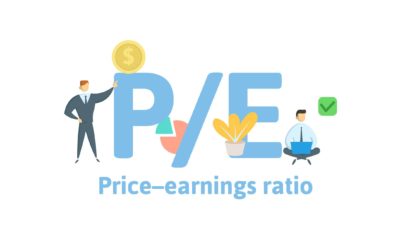Price isn't the same as value. While many know the difference between the two, I can't tell you how often I hear investors mixing the two up.
It happened again recently when a family friend was talking to me about how expensive the CSL Limited (ASX: CSL) share price had become after it jumped over $200 per share!
I won't necessarily argue with that except when he compared it to better value stocks like BHP Group Ltd (ASX: BHP), which was trading around $38.
Never mind the fact that comparing stock valuations across sectors is not straightforward, but comparing the prices of stocks against each other is a fallacy that must be avoided.
Do share prices matter?
More people than you think fall into this trap, even seasoned investors. I recall having the same conversation with my mum a few years ago and she's been investing in shares since she became a school teacher when she was 18.
The "logic" is you can only buy 10 shares of a stock priced at $200 if you had a modest capital of $2,000 but you can buy 1000 shares of a company trading at $2 a pop.
The limited number of shares you can buy in the first instance makes it not worth the while and you must be getting a better bargain the lower the share price is.
Price is not equal to value
There are several problems with that argument. As legendary investor Warren Buffett said: Price is what you pay, value is what you get. The two aren't linked.
The small number of shares you hold in a $200 company may represent significantly better value than the larger holdings in a $2 company.
This is because you need to be looking at other measurements when comparing stocks. These include:
- Shares on issue: A $200 company isn't necessarily bigger than a $2 one. It depends on how many shares have been issued. The market capitalisation (the listed value of a company) is a function of multiplying the share price with the number of shares issued. The number of shares also impacts on earnings per share, which is a key measure of value. In simple terms, A $1,000 profit split 10 ways yields a better return for you than when it's split 100 ways.
- Pace of growth and margins: Different companies within the same industry could be increasing sales and profits at different rates. Their profit margins could also vary materially. Investors will usually choose to invest in the faster growing company with the best margins as they tend to be better run and have a brighter outlook, but you can't tell which company is superior by just looking at the share price.
- Rate of returns: This is an extension of the rate of growth. Better run companies will usually generate higher returns for shareholders and this can be seen though their return on capital, return on assets or return on equity ratios. You should only compare rate of returns of companies operating in the same sector.
- Balance sheet strength: All things being equal, a company with more cash and less debt is more valuable than one with significant amount of leverage. The share price alone won't tell you the amount of leverage in a company. You will need to look at the company's balance sheet to work that out.
This isn't meant to be an exhaustive list but it will hopefully give you a good idea of why you shouldn't base your investment decision on the share price. I never look at the price of a stock on its own when investing as I rather own one share in the best run company than 10,000 in the worst.



